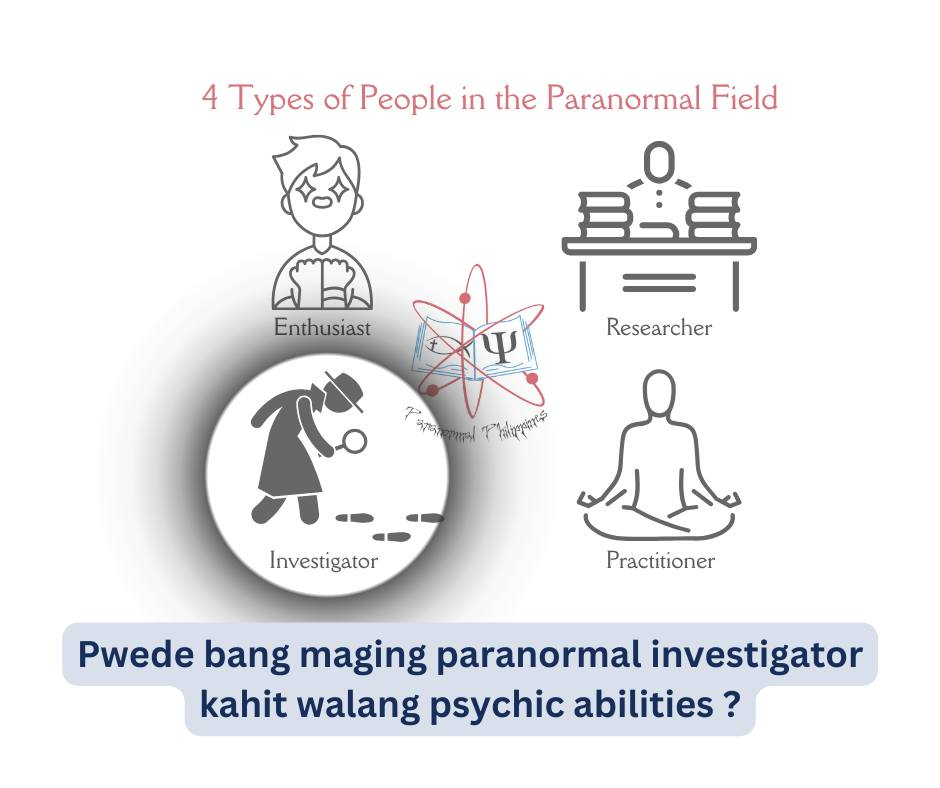Preliminary Investigation: People & Backgrounds to Check
🏠 |
🧭 |

This is an expanded discussion based on the guidelines of Mr. Ruel Ruiz in his book Multo, Thought Forms, Atbp.: The First Philippine Paranormal Investigation Handbook para sa mga Baguhan o Dalubhasa.
People to Interview
| Role label | Who that typically is | Investigator focus |
|---|---|---|
| People directly involved | Homeowner, manager, lead complainant — whoever called or is responsible for site access | Investigators must establish their motive for reporting, access, permissions, timeline of reporting, and expectations. |
| Those experiencing the occurrence | People who actually sense the events (sightings, sounds, touches, dreams, etc.) | The primary experiencers' perspective gives first-hand reports, but also their interpretations (which may or may not reflect the full situation). Eyewitnesses’ consistency and differences in their stories help validate (or challenge) claims. Multiple independent reports are stronger than one. Investigators must gather detailed first-person accounts, timelines, emotional/medical context, and corroboration. |
| People who know those involved | Family, partners, neighbors, coworkers | Friends, family, or coworkers may provide outside context or alternate explanations — are the experiencers under stress, ill, or known for exaggeration? Or are they usually reliable and grounded? Investigators may interview them to check consistency and gather corroborating details. |
| Neighbors (if needed) | Nearby residents or businesses | Confirm external sources (Neighbors can confirm outside factors: strange noises, animals, traffic neighborhood history, or environmental sources of disturbances. They can provide independent observations. |
Backgrounds to Check
Key personal background areas to document during preliminary investigations.
| Background | Why It’s Important in Paranormal Cases |
|---|---|
| Psychological | Mental health issues (anxiety, trauma, schizophrenia, sleep paralysis) can produce experiences that feel paranormal. Knowing this helps separate medical from unexplained. |
| Emotional | Stress, grief, or fear can heighten sensitivity and shape how people interpret events (e.g., seeing signs of a lost loved one). |
| Medical | Conditions like epilepsy, migraines, or medication side effects can cause hallucinations, dizziness, or altered states often mistaken for supernatural activity. |
| Social | Family dynamics, cultural beliefs, or community expectations can influence reports—sometimes experiences spread because of suggestion, gossip, or folklore. |
Tip: Use these categories during intake interviews; they help you gather context and avoid making assumptions.
More information: Preliminary Investigation: Location



Comments
Post a Comment